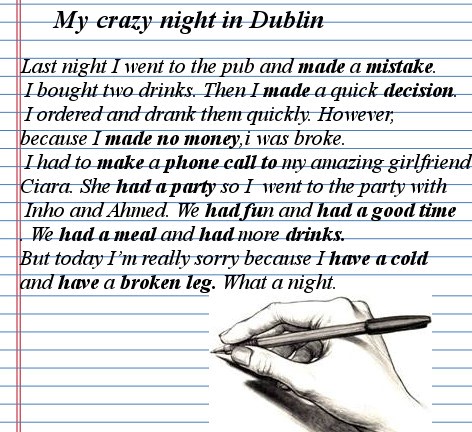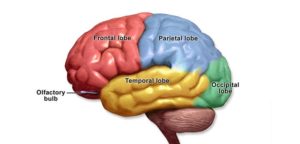In this post – the first of two on revising vocabulary – we will show you a few techniques to help you revise and remember the vocabulary in your notebooks.
Many students have problems trying to remember vocabulary. For example, you study something in class, or write a great expression in your notebook, and then, when you try to remember it, it’s gone! Irritating, isn’t it?
Below are two principles to remember when revising vocabulary:
- Spacing: when you learn vocabulary, you should return to it after 2 days, then 5 days, then after 2 weeks, then 4 weeks etc. Keep coming back! Try to increase the interval between each revision. If you do this, it will help vocabulary go from your short-term memory to your long-term Use your brain!
- Repetition: Research says you need to meet expressions and collocations again and again before you they are remembered. So the more you meet a collocation or expression, the more you have to use it and the more it will become part of your language.

However, simply looking back at your vocabulary is not enough; you need to DO SOMETHING with your collocations, phrases, expressions etc. You need to USE them.

(New vocabulary lying on a table)

(A Student doing something with his new vocabulary!)
Every time you re-visit a page of your notebook, try testing yourself, or else you will simply forget all that stuff you took the time to record and organize and go back to. USE IT OR LOSE IT!
To end this blog, here is the first of a group of activities that should help you to remember vocabulary (and stop you forgetting it!)
- Personalization: If you relate vocabulary to your own life, your experiences, plans, or desires, it will stay in your memory
Sample notebook page:

Personalized story by a student

This Time it’s Personal!
Now, it’s time for you to try personalization. Choose some new expressions that you’re added to your notebook this week and make up a little story with them, or just use them to write some sentences about your life – if possible the life you are experiencing in an English-speaking country.
In the next post we’ll go into some more activities and ideas for making your vocabulary more memorable.

